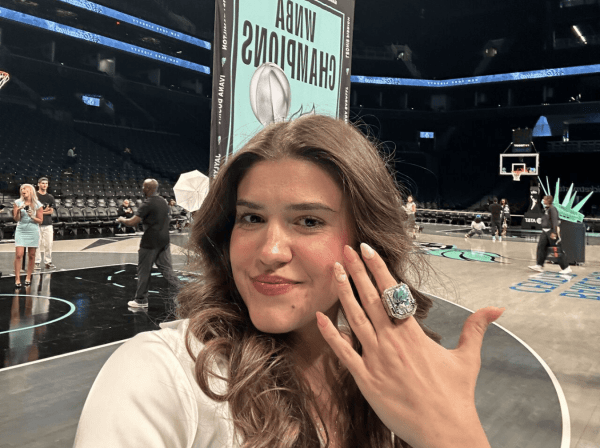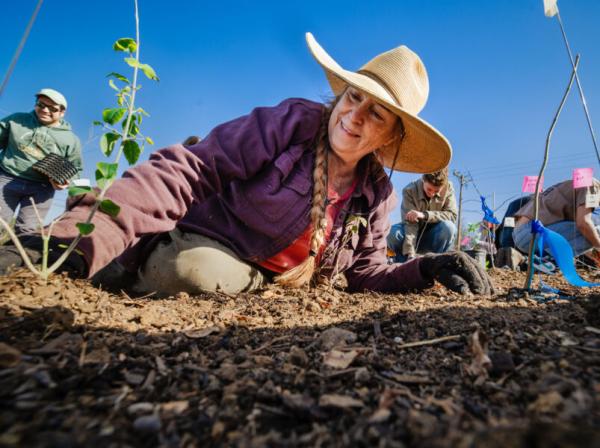Jose Antonio Vargas Speaks at St. Edward's
When Jose Antonio Vargas was 12 years old, his mother sent him from the Philippines to live with his grandparents in California. After four years, he learned the truth: His passport and green card were fake, and he had entered the United States illegally. At 30, he came out as undocumented in an essay in The New York Times Magazine and started the nonprofit Define American, which helps media tell accurate stories about immigration. Freshmen read his bestselling 2018 book Dear America: Notes from an Undocumented Citizen last summer and are discussing it in classes this fall. Vargas visited campus on Oct. 10.
Q: How Do You Define “American”?
A: It’s about community. We are all a product of the communities that we are a part of. As someone who is here without authorization from the government, I needed people to give me permission to exist beyond papers and laws. I don’t know where I would be in my career, or my life, if I didn’t have all those mentors and teachers who gave me permission to think outside of what society told me I was, and what my limitations were.
Q: How Would You Like News Coverage of Immigration Issues to Change?
A: Define American has been at the forefront of challenging news organizations not to use the word “illegal” to refer to people. It’s not a surprise we have dehumanizing policies when it comes to immigrants when that’s what they’re called.
Facts are important, but they’re not enough. People’s stories humanize the issue so we can understand different perspectives. Our organization is founded on the power of stories to change the narrative.
Q: You Write about How You Wanted to “Earn” Your Citizenship, Even Though There Is Currently No Legal Pathway for You to Become an American Citizen. What Does Citizenship Mean to You?
A: I may not be a citizen by legality or by birth, but to be a citizen means that I have to be accountable to people of this country — and not only the people who agree with me. We are all accountable to each other. How often do you really talk to people who don’t agree with you? How often do you actually challenge the way you think about something, and consider what other people think? Being a citizen means we have a responsibility to one another to be engaged, to participate.
Q: What Specific Changes in Policy or Culture Would Help Undocumented People?
A: There are 1.6 million undocumented people in the state of Texas. Without papers, you can’t drive. So Texas could allow undocumented residents to get a driver’s license. We can also think about the places where immigrant families can feel the most safe. How welcoming are our libraries, our community centers, our places of worship? Finally, what risks are U.S. citizens willing to take to advocate for their undocumented neighbors, friends and coworkers?
Q: What Conversation Do You Want Students to Go Home and Have with Their Parents or Their Grandparents?
A: Right now everybody’s being so woke on social media, calling out strangers [who say negative things about immigrants]. But are you calling out your own family members? When you hear something inaccurate, do you say something? Do not leave it to Fox News to have the conversation for you. Don’t leave it to CNN. Do not walk away.

Dear America: 5 Big Questions
In Dear America: Notes of an Undocumented Citizen, the 2019 Common Book, Jose Antonio Vargas tells his own story of immigrating to the United States and living here for decades without legal documents. Along the way, he encourages the reader to consider what it means to be an American, and how people whose families arrived generations ago should treat people who want to come to America today.
Here are questions to consider this semester as St. Edward’s explores the theme of citizenship. We hope you’ll join the conversation.
1. How Do You Define “American”?
What is America to you – a promise, a place, a product? How did you develop your idea of what it means to be American? Are you “American”?
2. How Did Your Relatives Come to the United States?
If your ancestors came to the United States generations ago, do you know where they came from and what the immigration laws were at the time? How long do you think it took them to become “American”?
3. Where Do You Get Your Information About Immigration?
Does your information about immigration and immigrants come from personal experience? History classes? Family stories? News or entertainment media? How can you be a careful consumer of news related to immigration?
4. If You Are a legal U.S. Citizen, Would You Help Someone Who Is Undocumented “Pass”?
Do you think the people who helped Vargas were doing the right thing? Have you ever been in a situation where someone helped you, despite the risk to him or herself?
5. What Have You Done to Earn Your Citizenship?
What does “citizenship” mean to you? If you were born into legal American citizenship, what do you think it requires of you?


